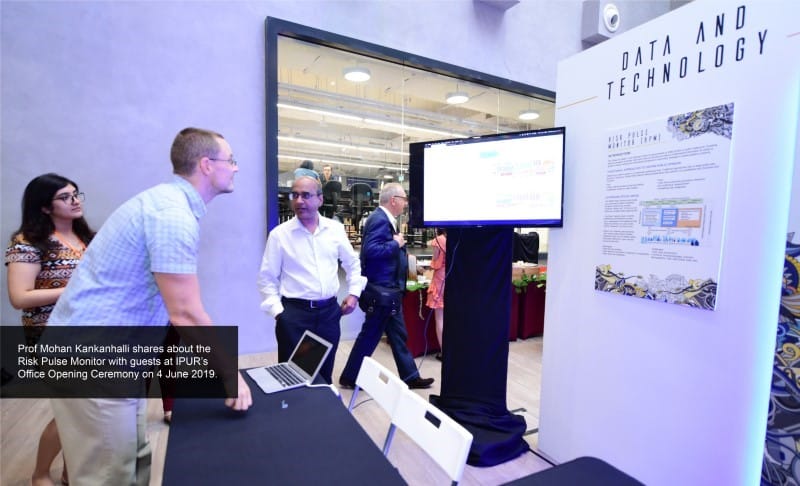Community resilience from California to Singapore

For me, natural disaster had always lived in the television and the newspaper. I grew up in the suburban utopia of Santa Rosa, California, and I had no past experience with major environmental hazards. However, fires in California have become worse in frequency and intensity every year, making the risk even more severe. Since 1972, […]
200 years of risk perceptions: Data science visualised in batik art

https://www.youtube.com/watch?v=qFyF9ZRAbtY Narratives provide an insight into people’s perception or views regarding an issue. A data team led by IPUR’s Lead Scientist for Data & Technology Asst Prof Reuben Ng curated and analysed a corpus of digitised newspapers, magazines, fiction, and non-fiction published since the 1810s to identify terms which have co-occured with the word “risk”. […]
Dynamic visualisation of individualised and population efficacy-toxicity risks

The therapeutic efficacy of any drug varies between individuals. A large part of this variability depends on the ‘pharmacokinetics’ of the drug. Pharmacokinetics refers to how the drug is processed in human body through absorption, distribution, metabolism and excretion (ADME). ADME are patient-related parameters. For example, gender, age, renal function, obesity, even genetics can result […]
Risk Pulse Monitor

The “Pulse of a Nation” is an important metric for governments or other private or public institutions. Knowing what the members of society most worry about or perceive as risks is fundamental information for policy & decision making, ranging from educational programs to hard policy changes to tackle people’s concerns. The Risk Pulse Monitor (RPM) […]
Fake news and social media

By: Dr Christian von der Weth and Prof Mohan Kankanhalli The rise of social media has changed how we perceive and handle information. For many, social media has become their main source of news. Never has it been so easy to access, publish and share information. Anyone can create, within minutes and sometimes anonymously, one […]
The future of artificial intelligence: Risks and benefits in the near and long-term future

Artificial Intelligence is set to impact every aspect of life, and every nation on earth. The field is rapidly changing and a wide-ranging impact on many aspects of modern life. These challenges cannot be solved by AI Researchers alone, nor without the expertise about the AI systems being fed into the process. Effective engagement in […]
Effective risk communications: A behavioural research approach

People face daily decisions about their health, finances, and environmental footprint. Well-meaning medical doctors, financial advisors, climate scientists and other experts may attempt to develop communications aimed at improving people’s judgments and decisions about specific topics. Such communication efforts may fail due to experts lacking insights about the wants and needs of their audience. Professor […]
Managing cyber risks

Managing cyber security in an organisation involves allocating the protection budget across a spectrum of possible options. This process requires an assessment of the benefits and costs of these options. Professor Marie-Elisabeth Paté-Cornell from Stanford University gave a talk on 29 June 2018 at NUS. She shared her team’s work in this field and discussed […]
If people aren’t responding to climate warnings, we need to change the message

Top decision-makers place extreme weather events and the failure of policies to address climate change as the top two high-probability, high-impact risks facing the world. Yet there often appears to be a wide gulf between the priority top decision-makers give to climate issues and the public’s level of concern. This gap matters for two reasons: […]
Bad numbers in the news: How to spot them, and how to stop them

Misleading charts, slippery slope arguments, wrong conclusions. Professor Sir David Spiegelhalter highlighted his concerns on how numbers, risks and evidence are used in the media today. https://www.youtube.com/watch?v=BOVjdH-x3mQhttps://www.youtube.com/watch?v=yFieFtp_rCU
